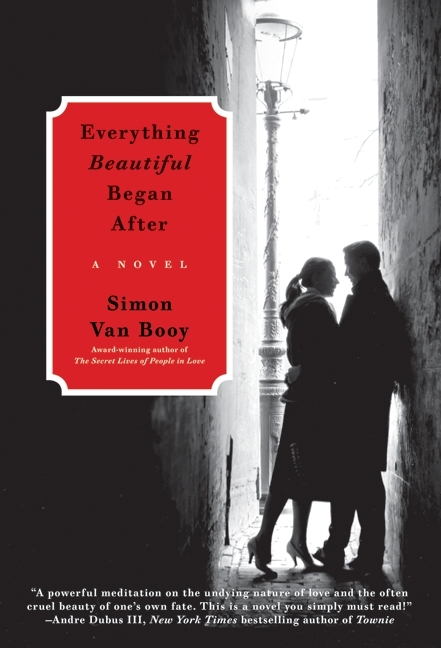Simon Van Booy’s debut novel, “Everything Beautiful Began After,” is suffused with beautiful writing. It also is full of surprises — to be expected, perhaps, as archaeology figures prominently in the story.
But the surprises Van Booy delivers are embodied in his characters. A small archaeological dig outside Athens, Greece, serves as a centering motif.
It is the perfect metaphor for what Van Booy works to achieve: how to make sense of scattered shards.
Two implicit questions drive the narrative. How do we craft the story of our lives from all the fragments lying in memory? And how do we make sense of the story of others, given the selected fragments they present?
Despite all that is exposed, there are always missing pieces with the power to dramatically swing understanding in new directions.
Van Booy’s writing seduces from the first page. Clearly, a treasure is at hand. The prologue is mesmerizing. But being the fragment it is, it won’t make sense until the book’s last page.
In the opening of chapter one, we learn that “for those who are lost, there will always be cities that feel like home — where lonely people can live in the exile of their own lives.”
“Everything Beautiful” revolves around three such people.
One is Rebecca, a young woman who grew up in a village in southern France, raised with her twin sister by her grandfather. She has come to Athens to focus on her art. There, she finds her way as a woman, because “Athens is a world of despair and sudden beauty.”
Another is George, an awkward classics scholar from the American South whose parents “were like a jigsaw puzzle that came without the parts he wanted most.” His father abandoned the family when George was a boy. We learn that he “was attracted to the Greek gods because no one believed in them anymore.”
The trio is complete with Henry, a handsome archaeologist from Wales who grew up always wanting to be an archaeologist. The appeal for him is that it focuses on people “who have to have died a long time ago.”
All three meet separately and coincidently — or arguably, by “fate.” Fate is a central question in the book, engendering varying responses from characters: It is only for cowards and the weak. It is something you can’t escape. It is something that living in exile frees you from.
The story of Rebecca, George and Henry together begins as a misbegotten love triangle, then morphs into something grander. They are all enjoined by the desire to find the missing piece that will make their own stories whole. For each, the answer is both different and the same.
Rebecca comes closest to capturing the deepest, richest vein that Van Booy attempts to mine. In pondering the fate of her own bones if found in the distant future, Rebecca wonders: “Will anyone remember the way I felt?”
Van Booy compels readers to ask questions as he takes them deeper into the archaeological layers of his characters’ lives.
He does things with point of view that are startling but with deliberate purpose, teasing the reader to go yet deeper in search of understanding.
There is no way to anticipate where he intends to take you. And though Van Booy asks much, he delivers in rich abundance.
Although this is his first novel, it is worth noting that Van Booy has written internationally acclaimed short stories, and that he’s edited three books on philosophy.
He is a hugely gifted writer. More vitally, he has something to say.
Frank O Smith is a Maine writer whose novel, “Dream Singer,” was a finalist for the Bellwether Prize.
Send questions/comments to the editors.



Success. Please wait for the page to reload. If the page does not reload within 5 seconds, please refresh the page.
Enter your email and password to access comments.
Hi, to comment on stories you must . This profile is in addition to your subscription and website login.
Already have a commenting profile? .
Invalid username/password.
Please check your email to confirm and complete your registration.
Only subscribers are eligible to post comments. Please subscribe or login first for digital access. Here’s why.
Use the form below to reset your password. When you've submitted your account email, we will send an email with a reset code.